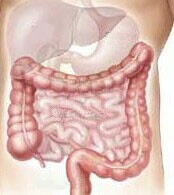- The Best Time of Day to Drink Bone Broth to Maximize Health Benefits
- 8 Ways to Increase Dopamine Naturally
- 7 Best Breads for Maintaining Stable Blood Sugar
- Gelatin vs. Collagen: Which is Best for Skin, Nails, and Joints?
- The Long-Term Effects of Daily Turmeric Supplements on Liver Health
- Could Your Grocery Store Meat Be Causing Recurring UTIs?
- Are You Making This Expensive Thermostat Error This Winter?
- Recognizing the Signs of Hypothyroidism
- 10 Strategies to Overcome Insomnia
- Could Artificial Sweeteners Be Aging the Brain Faster?
Colon Cancer Cases Decline for Older Americans


Americans appear to be winning the war on colon cancer, with a new study finding that colon cancer rates among Americans aged 50 and older fell by about a third from 2000 to 2010.
The 30 percent decline is due to the growing use of colonoscopy to screen for colon cancer, say researchers from the American Cancer Society.
They found that at the same time that colon cancer cases were dropping, colonoscopy rates among adults ages 50 to 75 rose steeply — from 19 percent in 2000 to 55 percent in 2010.
“These continuing drops in incidence and [death rates] show the lifesaving potential of colon cancer screening; a potential that an estimated 23 million Americans between ages 50 and 75 are not benefiting from because they are not up to date on screening,” Dr. Richard Wender, chief cancer control officer at the American Cancer Society, said in a society news release.
Another expert agreed. “Our screening technologies seem to be preventing cancers from developing — usually by detecting and removing polyps before they grow into cancer — or catching cancers at an earlier stage, so that survival is vastly improved,” said Dr. Arun Swaminath, director of inflammatory bowel disease at Lenox Hill Hospital in New York City.
“In 2014, there are estimated to be 135,000 new diagnoses of colon cancer [in the United States], but we hope to get the number much closer to zero by getting the at-risk population access to colorectal cancer screening over the coming years,” Swaminath added.
The new analysis of U.S. national data revealed that overall colon cancer rates decreased by an average of 3.4 percent a year between 2001 and 2010.
However, there were substantial differences in various age groups. Rates fell by 3.9 percent per year among those 50 and older, but rose by 1.1 percent a year among people younger than 50. That increase among younger adults may be due to rising obesity rates and poor eating habits, the cancer society noted.
The largest fall in colon cancer rates occurred among adults 65 and older. The rate of decline rose from 3.6 percent per year from 2001 to 2008 to 7.2 percent per year from 2008 to 2010. This is likely due to higher screening rates among Medicare-eligible seniors, the experts said.
In 2010, 64 percent of Americans 65 and older had undergone a recent colorectal cancer screening test, compared with 55 percent of adults ages 50 to 64, according to the study published in the March/April issue of CA: A Cancer Journal for Clinicians.
The researchers also found that colon cancer deaths are falling at a greater pace than in years previous. From 2001 to 2010, death rates fell by about 3 percent per year, compared with declines of about 2 percent per year in the 1990s.
Two other colon cancer experts said the new report is encouraging, but more work needs to be done.
Despite significant reductions in colon cancer cases and deaths, “significant disparities in outcomes exist among socioeconomic and racial groups,” noted Dr. Rajiv Sharma, radiation oncologist at the North Shore-LIJ Cancer Institute in Lake Success, N.Y. “A continued effort to improve universal access to screening, education, and best [cancer care] practices are imperative,” he said.
Dr. Fadi Braiteh is an oncologist with Comprehensive Cancer Centers of Nevada, a US Oncology Network affiliate in Las Vegas. He noted that, “every day this year, approximately 375 people will be diagnosed with colon cancer and about 130 will die from the disease.”
According to Braiteh, improvements in treatment advances in surgery, radiation therapy and drugs have also played a role in declining death rates from colon cancer. But not everyone is benefiting equally, he added.
“At each stage, cancer researchers are puzzled by the worse outcomes of ethnic minorities such as African Americans and Asians when compared to those of Caucasians,” Braiteh said. “It is not exclusively explained by health services disparities, and point to possible underlying biological differences among colon cancers.”
The study and an accompanying report were released by American Cancer Society researchers as part of a new effort by the National Colorectal Cancer Roundtable to increase screening rates to 80 percent by 2018.
More information
The U.S. National Cancer Institute has more about colorectal cancer screening.
Source: HealthDay
Copyright © 2026 HealthDay. All rights reserved.










